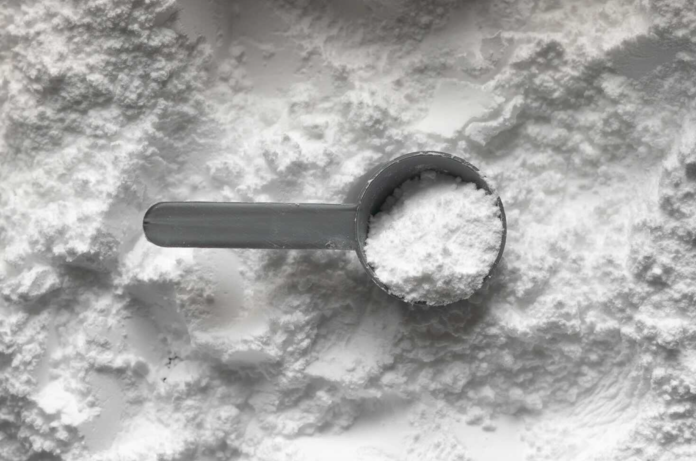When you think of the word “creatine,” you probably think of bodybuilders and gym rats. For many of us, it may be interesting to learn that creatine monohydrate has more to offer us than just muscle growth and athletic performance. In fact, there may be evidence to suggest its efficacy in suppressing tumor growth. It seems to act as a molecular energy store for immune cells by storing and distributing energy to their fight against cancer, according to new UCLA research.
Creatine is an amino acid that is found in various parts of our bodies but is primarily found in our muscles. It is also found in our brain. Roughly half of the creatine in our bodies is produced through the liver and kidneys while the other half we get from our diet if we are meat-eaters. The word creatine actually means “meat” in Greek. Vegetarians and vegans may have lower amounts of creatine in their bodies and may especially benefit from supplementation. [3] Creatine is often used as a supplement for athletic recovery and performance, to increase muscle mass and tone, to promote brain health, to promote bone density, and more. [1] In addition to these benefits, there is new research to suggest that creatine may improve our immune function against cancer cells.
Creatine May Suppress Tumor Growth
According to an article published in the Journal of Experimental Medicine, “Supplementing creatine to WT mice significantly suppressed tumor growth in multiple mouse tumor models.” The mechanism by which creatine suppresses tumor growth is by conserving “bioenergy to enhance antitumor T cell immunity.” This finding is important because it could provide a new, successful therapy to prevent or treat cancer. [2]
“Because oral creatine supplements have been broadly utilized by bodybuilders and athletes for the past three decades, existing data suggest they are likely safe when taken at appropriate doses,” said Lili Yang, a member of the Eli and Edythe Broad Center of Regenerative Medicine and Stem Cell Research at UCLA and the study’s senior author. “This could provide a clear and expedient path forward for the use of creatine supplementation to enhance existing cancer immunotherapies.”
Creatine supplementation is generally safe but you may experience weight gain from increased water in your muscles. According to the Cleveland Clinic, if you are dehydrated or trying to lose weight, creatine may be dangerous to take. [4] Ashley Reaver, MS, RD, CSSD, Lead Nutrition Scientist at InsideTracker, there has been extensive research on creatine with very little finding on the negative impacts of taking it.
[1] https://www.mayoclinic.org/drugs-supplements-creatine/art-20347591
[2] https://rupress.org/jem/article/216/12/2869/132512/Creatine-uptake-regulates-CD8-T-cell-antitumor
[3] & [4] https://my.clevelandclinic.org/health/articles/17674-creatine-and-creatine-supplements



